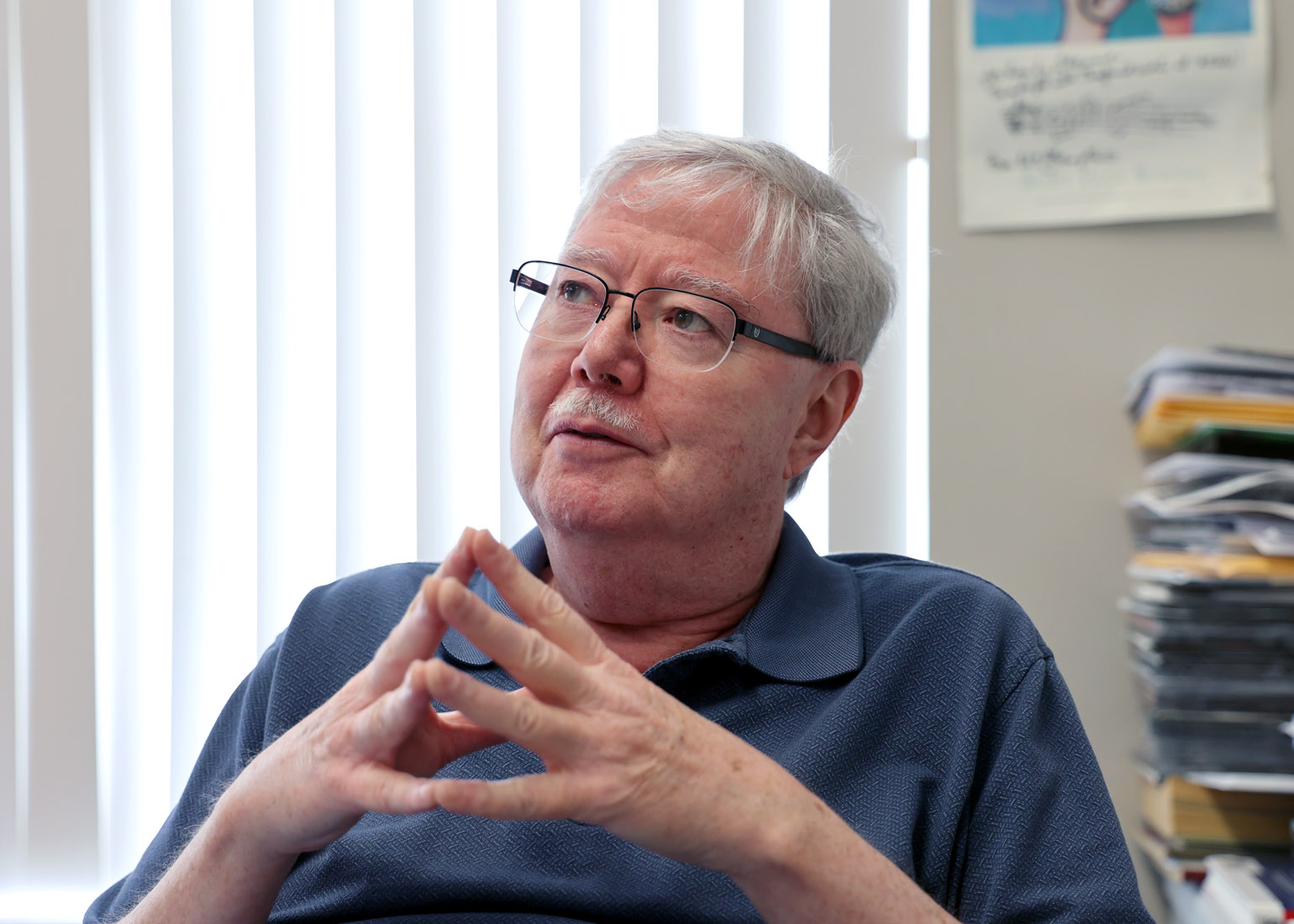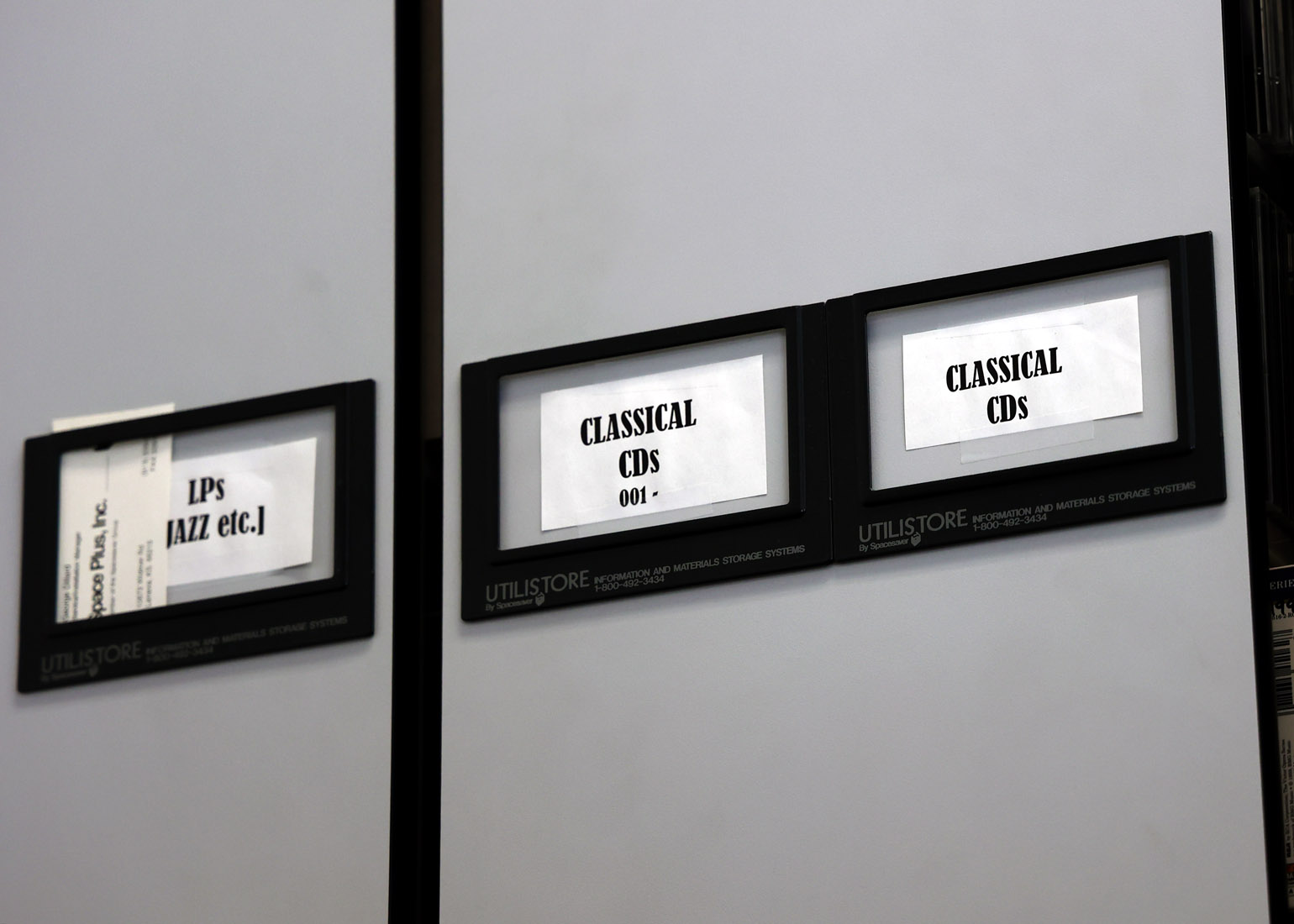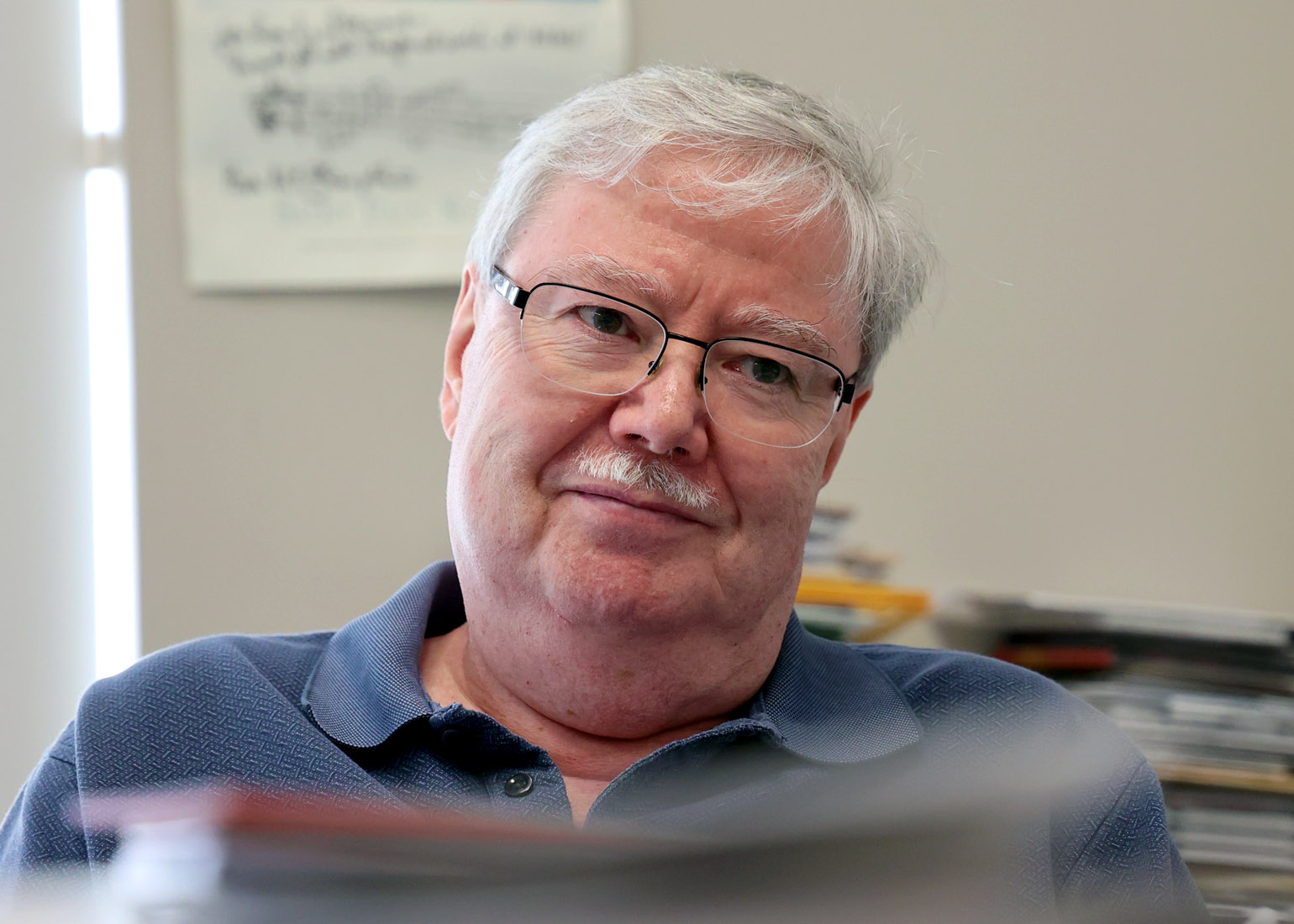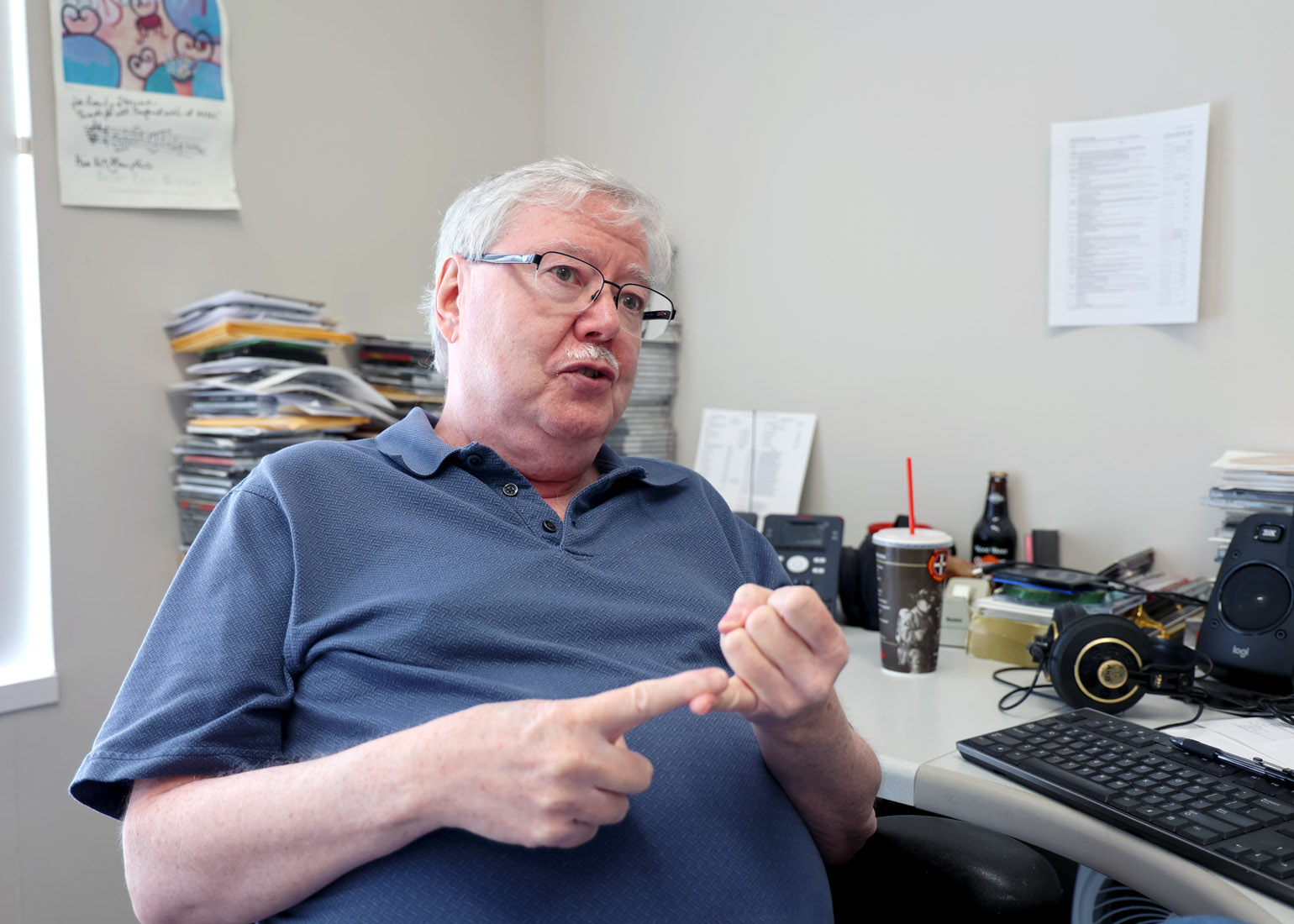OPINION|
Randy Stewart, 67, the voice of KSMU public radio, this month will ride the air waves into semi-retirement.
Stewart is retiring from full-time work March 31. But there's a possibility he will continue working at the station part-time.
Regardless, I figured this was as good a time as any to write a profile of the long-time radioman. Stewart originally planned to work until age 70, but that was torpedoed by a bout with cancer in 2021.
“My wife and I did not know how sick I actually was,” he says.

He was treated with chemotherapy, radiation and then immunotherapy. It was the immunotherapy, he says, that almost killed him.
He has lost half the pulmonary function in one lung.
Stewart returned to work in October 2022 at 10 hours a week, then upped it to 20 hours a week; the goal was getting back to 40.
“I eventually decided that I don't have the desire to get back to 40 hours and I don't have the stamina.”
Never seriously considered leaving KSMU
Stewart, who lives in Battlefield, has the longest tenure of any radio announcer in Springfield. KSMU was created in 1974. Stewart started there as a student in 1976. He was hired full-time in 1978 and soon, at 21, became the station's music director.
In his entire life, he says, he has filled out only one job application. The one at KSMU.
“I have never worked anywhere else,” he tells me. “This is it.”
He never seriously considered leaving KSMU. First, he's happy here.
“This is one of those jobs where the people are unfailingly good to work with,” he tells me. “It's always been that way. They appreciate me. They appreciate the job that I do. They appreciate the fact that I've got interests and knowledge about certain things that none of them have — and don't want to have.”
The other reason he never left is that his parents, who lived in Springfield, were well on in years when they had Randy. They both developed dementia.
“I had two elderly parents back here that we really couldn't leave,” he says.
His father died in 1997 and his mother died in 2004.
He and his wife, Tammy, have no children. They will be married 40 years in June.
People hear his voice: ‘You're Randy Stewart!'
About once a month, Stewart will be at a grocery store or restaurant when someone will hear him speak, hit pause and then tell him they recognize his voice.
Sometimes they know it's from KSMU. And sometimes they'll be more specific: “You're Randy Stewart!”
Stewart was born in Springfield and graduated from Glendale High School in 1975. In choosing a college, he says, he never considered a school other than Southwest Missouri State University, now MSU. He grew up in a lower middle class home, he says, and lived with his parents through much of his college career.
He could not have afforded a college where he would have had to pay room and board.
Stewart is renowned for his knowledge of classical music and, to a lesser degree, opera.
“He has an unbelievable knowledge of classical music and the history of broadcasting,” says Mike Smith, long-time co-worker. “He is an interesting, talented and dedicated broadcaster who has done a lot for the area.”
Smith was one of several people who nominated Stewart for an Ozzie award in 2006; Stewart won. He was referred to as “the voice of KSMU.” Stewart considers the recognition a capstone in his career.
The Springfield Regional Arts Council each year selects a handful of creative individuals, groups and organizations to receive Ozzie awards for their work in supporting the arts in the Ozarks.

Stewart remembers the award well. It was made of mortar and tiles. Once it was given to him, he went back to his seat and it fell apart. The mortar hadn't set right.
No problem, he says.
“So they had somebody else make a vase for me. It says ‘Ozzy' on it. It's at home sitting on our piano.”
‘I've got news for you folks'
Stewart is known for his Friday readings of the KSMU arts calendar, which he compiles from the many press releases sent him from arts organization. He rewrites them and often has a guest with a weekend event to promote in the studio with him.
“It grew to the point where many weeks of the year, many Fridays, it takes up a whole hour of me reading press releases that I've rewritten in my voice,” he says.

His bosses over the years have attended broadcast meetings around the nation where other executives question how the arts calendar show possibly can attract an audience, Stewart says.
They say, “‘Nobody's gonna sit and listen to him read that stuff.' I've got news for you folks,” Stewart says. “They do. And they have for 30 some years now.”
He certainly impressed ‘Dame Somebody'
Stewart tells me he's not as focused on opera as he once was. For 15 years he was a member of the Springfield Regional Opera board. It was renamed as the Ozarks Lyric Opera in 2021.
Arlen Diamond, a former KSMU general manager, was first hired in 1978 as a faculty member in broadcast programming and broadcast management.
Diamond tells me two stories about young Randy Stewart's expansive knowledge of classical music and opera.

One day, Diamond says, out-of-the-blue he received a call from a man named Tom Livingston, general manager of one of the nation's most revered radio stations dedicated to classical music — WETA in Washington, D.C.
Livingston explained to Diamond that he has parents in Arkansas whom he was visiting and he happened to pick up KSMU from Springfield.
“He told me he had just heard one of the best announcers he's ever heard,” Diamond says. “I asked him what time he heard the announcer. He told me, and I said that it would have been Randy Stewart.”
Diamond's opera story goes like this:
“I can never remember this woman's name,” he says. “But she was an opera singer. Dame Somebody. Randy interviewed her up in the production studio in the old building.”

The old KSMU office and studio was in a dilapidated former house at the southwest corner of Grand and National. MSU also owned a brick building next to it, also used by KSMU. Both buildings were razed years ago.
“And when she came down after being interviewed by Randy,” Diamond tells me, “she told me: ‘That young man knows more about opera than anybody who has ever interviewed me.'”
A friendship that started at Glendale High
Stewart's interests in classical music and opera were not something passed to him by his parents. His dad was an office manager and his mother, later in her life, was a registered nurse. He has a sister, eight years older, who lives in Florida.
He never played an instrument, he tells me.
Can you read music?
“Not very well.”
His interest in radio preceded his interest in classical music.

“I was kind of a precocious little kid,” he says. “By the time I was 10, I was interested in radio.”
His interest in classical music first bloomed at Glendale High School. Classmate Steven Tharp, who would become a lifelong friend, had an interest in classical music. Tharp is now an associate professor of voice at the University of Missouri. He is a tenor who has performed internationally.
“He really was the one who introduced me to music,” Stewart says of Tharp.
Tharp, 66, tells me had several classes with Stewart at Glendale.
“I think probably as we started talking, you couldn't get far with me without finding out that I loved music and classical music in particular,” Tharp says. “And you couldn't get far with Randy without finding out that he was fascinated by the history of radio and broadcasting and things like that.
“He already had a small record collection, and I did the same. We just naturally started comparing notes about what recordings we liked. What music interested us and what performers we knew about.”
Stewart adds that Tharp's mentor was teacher William Brandon “Bucky” Bowman, who taught French and English at Glendale 1965 to 1993. Bowman died in 2019 at age 80.
“‘Bucky one day came up to Steve (Tharp) with a stack of LP opera box sets and told him — ‘This is Maria Callas. You will listen to her,'” Stewart recalls.
Callas was one of the most famous opera singers of the 20th century. She died at age 53 in 1977.
Was there ever an alternate career path?

In my interview with Stewart, he often used the words “geeky” and “nerdy” in describing himself.
“I use those words proudly,” he says. “It's a badge of honor to me. It just connotes an interest in an unusual area of human endeavor that a lot of other people take for granted. Let's put it that way.”
Says Tharp, “I wouldn't call my friend ‘nerdy' or ‘geeky,' he can call himself that if he wants. I prefer to think of him as an ‘expert.'
“Randy has changed remarkably little,” Tharp says of his friend. “He still has the same interests. He's still an incredibly kind person, an incredibly considerate person. Randy's always been the kind of person you wanted to have around if two people were having a friendly argument. He would be the go-between. He'd be the one who tried to square the circle or be a moderator between two points of view.
“He found his niche early,” Tharp says. “As I told him at the time, it's a perfect fit. And it's been such a perfect fit that he's stayed for close to 50 years. It's amazing.”
I ask Stewart what he would have done in life if he had not been a broadcaster? Was there ever a Plan B?
“I never had one. I really didn't. I thought this is a cool thing to get into. I might be considered kind of unimaginative in that way, but I just came upon this and said, ‘OK, this is what I want to do.' And I didn't really think about anything else.”
This is Pokin Around column No. 168.

